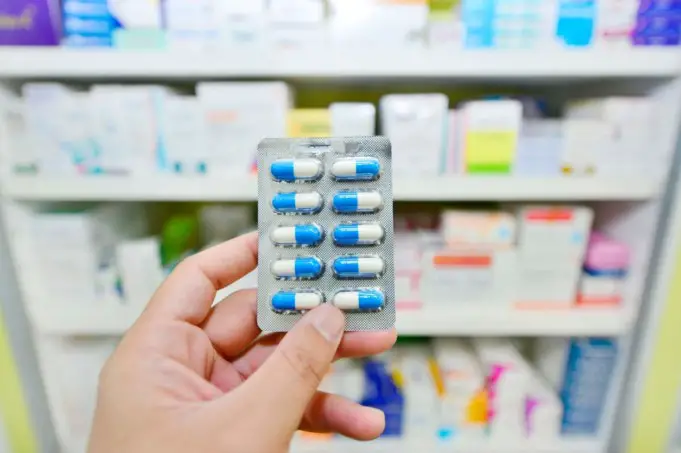Nine out of ten people in Nigeria are regular users of over-the-counter (OTC) medications. These medications are most often purchased for the treatment of ailments such as aches and pains, fevers, coughs and colds, skin irritations and disorders, heartburn and digestive problems.
The reasons why people buy over the counter drugs are easy to understand. It is because they are readily available in pharmacies, convenient, and naturally less expensive than having to visit the doctor and dish out cash to pay for a pricey prescription.
In addition to helping to save the user’s time and money, over-the-counter drugs give many users a sense of control over their general well-being. That is all for the greater good only if these OTC drugs are used correctly for a specific condition in the correct dosage and for the specified duration.
However, one in every five Nigerians who engage in self-medication admit to knowingly take more than the prescribed dose of many over-the-counter medications or using the drugs for a longer duration than written on the label.
Even if people correctly use O.T.C.s, there can be complications. Some medications should not be taken by individuals who have certain health conditions. Also, some OTC medications should not be combined with specific types of food or other meds — because of the risk of adverse interactions.
Commonly Abused Over-the-counter drugs
Postinor-2
Postinor-2 Tablets are popular. This is a brand of medicine that contains “levonorgestrel” as an active ingredient. The primary mechanism of action found in levonorgestrel as a progestogen-only emergency contraceptive pill works to prevent the fertilization of eggs by inhibiting ovulation and causing menstrual bleeding by thickening the mucosa of the user’s cervix.
Pharmacotherapeutic effect of Postinor-2: this OTC drug is used as an emergency contraceptive after sex.
Pharmacotoxic effect of Postinor-2: Delayed menses, spotting, or bleeding that is not related to menstruation, irregular bleeding or spotting, vomiting, nausea, diarrhea, lower abdominal pain, headaches, breast tenderness dizziness.
Codeine
Codeine is a popular opioid pain medication that is highly abused. An opioid is sometimes known as a narcotic. It is often used to induce sleep and can cause hallucinations.
Pharmacotherapeutic effect of codeine: Codeine is used for the treatment of mild to moderately severe aches and pains.
Pharmacotoxic effects of codeine: vomiting, nausea, feeling dizzy or drowsy, stomach pain, sweating, constipation, or mild itching or rash.
Paracetamol: Paracetamol is a medication that is used for treating pain and fever. In Nigerian, paracetamol is one of the most commonly abused drugs. Several people take tablets of it every day, and its concentration in the human body can reach toxic levels. When a person overdose on paracetamol, they increase their risk of liver damage.
Pharmacotherapeutic effect of paracetamol: Paracetamol is a medication used for the relief of fever, headaches, mild pains, lower back pain, etc.
Pharmacotoxic effect of paracetamol: Paracetamol abuse or overdose can lead to nausea, liver damage, vomiting, sweating, and acute liver failure. Some research has also drawn a link between paracetamol use and a slight rise in kidney cancer.
Other over-the-counter drugs include
- Dextromethorphan (DXM)
- Ephedrine
- Caffeine pills
- Laxatives
- Pseudoephedrine
Statistics exist to prove that with the present addiction epidemic around the world, more teenagers and young adults are experimenting with over-the-counter drugs. This may appear counterintuitive because it is only reasonable to think that more kids would be scared of addiction.
However, if there is anything that the young brain lacks, it is fear modulation. Many young strongly believes that nine of the tragedies and bad news they hear about substance abuse can ever be the case with them. When you pair this pattern of development with the natural curiosity of young people, it makes for a sad situation with drug abuse.
Additionally, with the rise in social and academic pressure in today’s society, young people can easily be put under immense stress. Knowing all these factors and putting them into consideration, parents need to know of the dangers their young ones face.
Over-the-Counter drugs have become a Problem
Often, people, both young and old, believe that if certain drugs are easy and legal to obtain, then they are entirely safe for use.
While these drugs will not kill you instantly or cause you to cause immediate harm, some of these drugs cause lots of physical ailments and can cause some life-threatening accidents.
People are likely to overdose on OTC medications, and when they do, many of these drugs can impair judgment, which can cause some terrible consequences.
If you or anyone you know is struggling with the abuse of over the counter drugs, endeavor to get the right help and treatment.
It is essential to get to the root of why a person has become dependent or is abusing OTC drugs in the first place. Once that is done, a licensed therapist can then help such a person overcome addiction and handle life without depending on these drugs or any other mind-altering substances.
We hope that this article has been helpful. Please leave a comment below.












